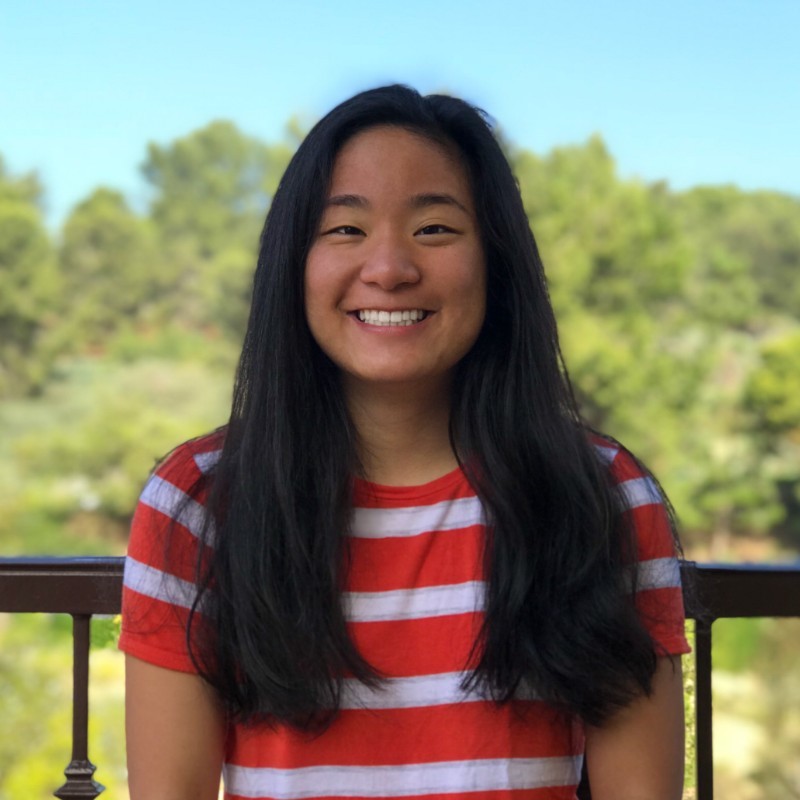Tiffany Yen, a Duke junior majoring in chemistry, grew up in the sunny suburbs of Los Angeles, never too far from the coastline. She’s always loved being outside, especially in California where there is no shortage of trails to hike and beaches to go to. Friends know her as a Patagonia aficionado, going so far as to buy her a book profiling the company’s business model for her birthday. In fact, from Yen, I learned that every Patagonia store gives out city-specific stickers, so if you feel so inclined, you can collect them (as Yen obviously does). All this is to say: Tiffany Yen has always been interested in sustainability.
“I never understood why what we do has to come at the cost of the planet,” Yen said, in discussing how her years in school learning about climate change fueled her passion for sustainable science. “The environment is so important. Without it, we wouldn’t be here.”

Unsure of what she wanted to study at Duke and where she wanted to go post-graduation, she decided to take her two interests – sustainability and chemistry, particularly polymer chemistry – and see what she could do to combine them. She knew coming into college that she wanted to do research, so that landed her at the Becker Lab for Functional Materials.
The Becker Lab is a multidisciplinary organic materials lab focused on biomedical applications – specifically, things like adhesives and drug delivery. Yen works on improvements to intercranial pressure sensors. Traditionally, after head trauma, doctors need to measure the intercranial space to see if the brain is damaged. The sensor that is used is wired and tends to be a very invasive procedure – the probe is connected to a machine outside, and there’s a high risk of infection.
Collaborators at Northwestern developed a biodegradable wireless device that, after implantation, doesn’t require a secondary procedure to take out. The problem is that it degrades a little too fast – and so measurements can’t be taken. Yen, with her mentor, is working on building a film encapsulation to make it possible for the device to take good measurements.
Right now, they’re trying out azelaic acid instead of succinic acid. Azelaic acid has favorable anti-inflammatory properties and is commonly used in acne medications. It could also potentially increase the bioresorbability of the polymer. Their hope is that the film not only helps the body metabolize more of the polymer, but actually helps in healing.

So why medical research? Yen explains that while her work may not seem obviously linked to sustainability, the push for finding materials that can degrade is extremely relevant. And while she’s not all that interested in medicine specifically, she likes things that are practical and applicable.
“When I did research in the past,” Yen said, “there wasn’t always an application. It sometimes was about synthesizing something, just for the sake of science.” And while there’s certainly value in strengthening science fundamentals, she admits that research in that vein doesn’t really appeal to her. “I want to work on things that I directly see adding value to society.”
After college, Yen sees herself going to graduate school and working towards a PhD in “some physical science related to chemistry.” Ultimately, her goal is to work at the interface of venture capital and scientific research, using her science background to find and fund promising innovations in sustainability. “There are so many incredible things being researched out there,” Yen says, “but the biggest problem in research is funding and commercializing.” She continues, “I think there are other people out there who can do better research than I can, so I want to go out there, find the stuff, and fund it.”
Yen has come to believe that just because she dedicated her time at Duke to science, it doesn’t mean she needs to stay in science forever. There’s value in scientific knowledge no matter where you go. And as businesses realize that public interest in sustainability is growing, she’s crossing her fingers that her skillset will poise her to be a valuable asset in seeking out new innovations.

She said that when she came into college, she felt a pressure to pursue a more traditional path, like being pre-med. “I value stability, and I’m very risk-averse,” she laughs.
But when she asked herself what she’d be happiest doing, she knew it would be trying to save the planet in some way. But she clarifies: “At this point, I can’t save the planet. I think that’s a very far-fetched thing for one person to do.” Instead, “I’d rather try and maybe fail than not try at all.”

Post by Meghna Datta, Class of 2023
